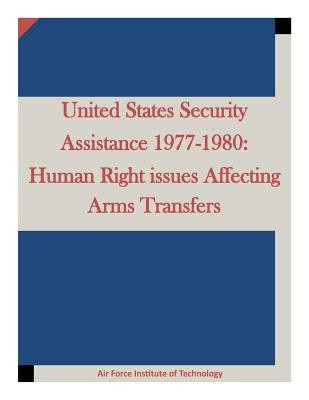| United States Security Assistance 1977-1980: Human Right issues Affecting Arms Transfers Contributor(s): Air Force Institute of Technology (Author) |
|
 |
ISBN: 1511658215 ISBN-13: 9781511658218 Publisher: Createspace Independent Publishing Platform OUR PRICE: $12.30 Product Type: Paperback - Other Formats Published: April 2015 |
| Additional Information |
| BISAC Categories: - Political Science | Security (national & International) |
| Physical Information: 0.2" H x 8.5" W x 11.02" (0.55 lbs) 98 pages |
| Descriptions, Reviews, Etc. |
| Publisher Description: The 1970s were a period of great transition for the United States. Plagued by theVietnam conflict, a conflict which we could never win because of poor planning and lackof resolve by government officials in the highest office, and the Watergate debacle, whereour government veered out of control, the time was ripe for change. Which is preciselywhy the ideals and philosophies of one James Earl Carter enabled him to ascend tobecome the 39th President of the United States.President Carter entered office pledging the United States would lead the way inthe restriction of weapons exports and increase world awareness on the issue of humanrights. He kept his word by passing a six-point plan, known as Presidential Directive 13, which imposed a variety of restrictions on the transfer of arms from the United States toother countries. He also attempted to accomplish his human rights objective by linking thetransfer of arms with the recipient country's acceptable treatment of its populace. Byprotesting human rights violations he hoped to secure increased rights for the politicallyoppressed around the world.Though the Carter effort did succeed in raising the level of concern for humanrights around the globe, due to its uneven application and inconsistent implementation, itwas discarded as a policy tool in 1979 |